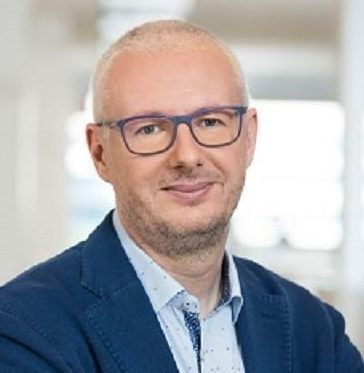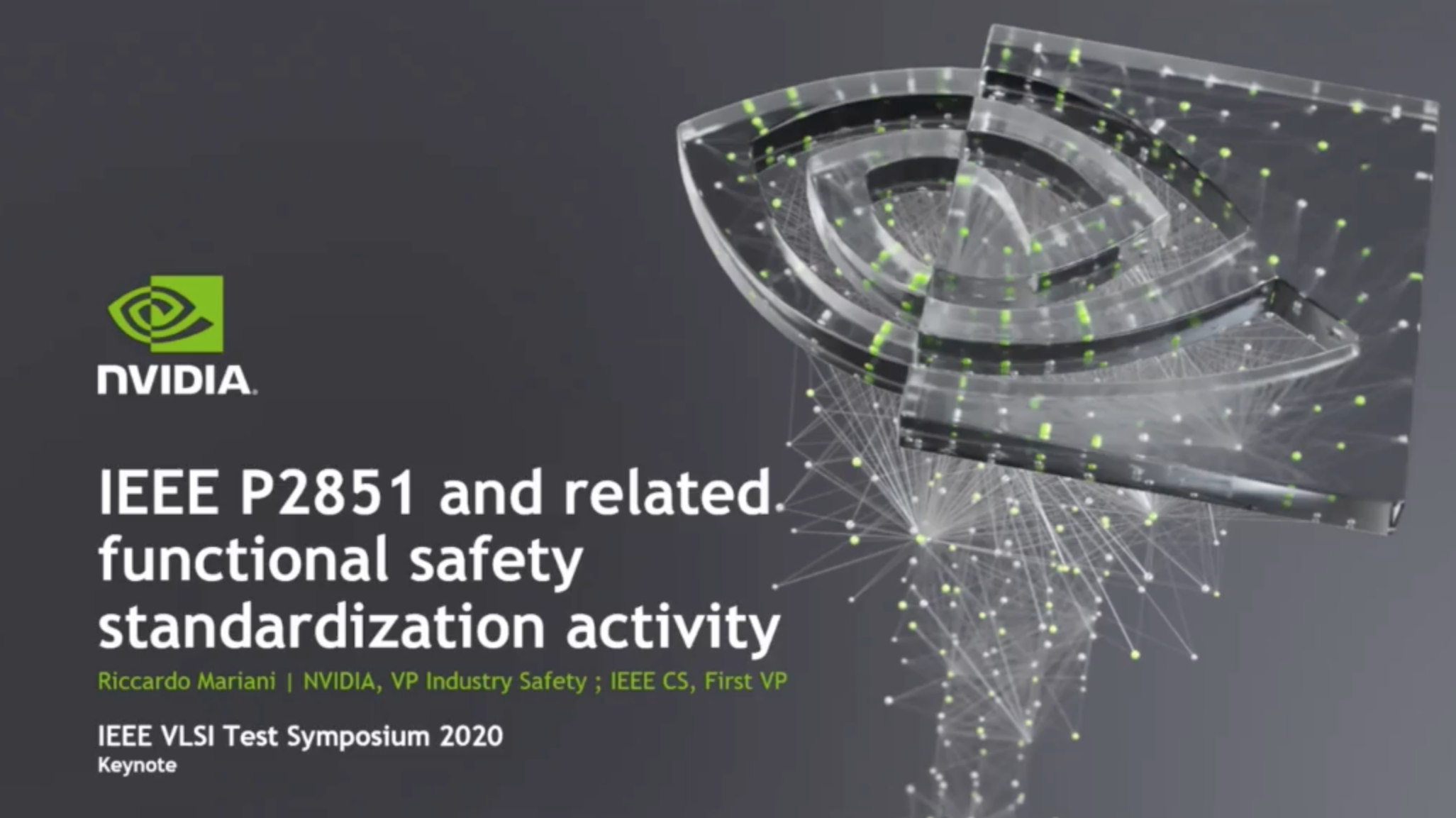Riccardo Mariani, Vice President, Industry Safety at NVIDIA
 Riccardo Mariani is VP Industry Safety at NVIDIA. Before, he was an Intel Fellow and the chief functional safety technologist in the Internet of Things Group at Intel Corporation. Based in Pisa, Italy, he was responsible for defining strategies, roadmaps and technologies for Internet of Things applications that require functional safety and high performance, including transportation and industrial systems. He was also the functional safety global domain lead for Intel’s CISA Architecture Working Model Initiative. Mariani joined Intel in 2016 with the acquisition of Yogitech S.p.A., a leading provider of functional safety technologies. As Yogitech’s chief technology officer and co-founder, he invented the company’s flagship faultRobust technology and related products. Mariani led Yogitech to pioneer the certification of semiconductor intellectual property for the highest level of safety integrity, and to introduce electronic design automation tools specific to functional safety, known as the Design-for-Safety paradigm. Before founding Yogitech in 2000, Mariani was technical director at Aurelia Microelettronica S.p.A. His responsibilities in that position included leading high-reliability topics in projects with the CERN research center in Geneva. A recognized expert in functional safety and integrated circuit reliability, Mariani regularly contributes to industry standards efforts, including leading the ISO 26262-11 part specific to semiconductors. He also speaks frequently at industry conferences, lectures at universities and coordinates functional safety topics for projects funded by Italy and the European Union. Mariani has co-authored a book and authored or co-authored more than 70 papers related to functional safety, high-reliability circuits, design for testability, advanced design techniques and asynchronous circuits. He holds multiple patents in the field of functional safety, with additional patents pending. Mariani earned a bachelor’s degree in electronic engineering and a Ph.D. in microelectronics, both from the University of Pisa in Italy. He has won the SGS-Thomson Award and the Enrico Denoth Award for his engineering achievements.
Riccardo Mariani is VP Industry Safety at NVIDIA. Before, he was an Intel Fellow and the chief functional safety technologist in the Internet of Things Group at Intel Corporation. Based in Pisa, Italy, he was responsible for defining strategies, roadmaps and technologies for Internet of Things applications that require functional safety and high performance, including transportation and industrial systems. He was also the functional safety global domain lead for Intel’s CISA Architecture Working Model Initiative. Mariani joined Intel in 2016 with the acquisition of Yogitech S.p.A., a leading provider of functional safety technologies. As Yogitech’s chief technology officer and co-founder, he invented the company’s flagship faultRobust technology and related products. Mariani led Yogitech to pioneer the certification of semiconductor intellectual property for the highest level of safety integrity, and to introduce electronic design automation tools specific to functional safety, known as the Design-for-Safety paradigm. Before founding Yogitech in 2000, Mariani was technical director at Aurelia Microelettronica S.p.A. His responsibilities in that position included leading high-reliability topics in projects with the CERN research center in Geneva. A recognized expert in functional safety and integrated circuit reliability, Mariani regularly contributes to industry standards efforts, including leading the ISO 26262-11 part specific to semiconductors. He also speaks frequently at industry conferences, lectures at universities and coordinates functional safety topics for projects funded by Italy and the European Union. Mariani has co-authored a book and authored or co-authored more than 70 papers related to functional safety, high-reliability circuits, design for testability, advanced design techniques and asynchronous circuits. He holds multiple patents in the field of functional safety, with additional patents pending. Mariani earned a bachelor’s degree in electronic engineering and a Ph.D. in microelectronics, both from the University of Pisa in Italy. He has won the SGS-Thomson Award and the Enrico Denoth Award for his engineering achievements.
